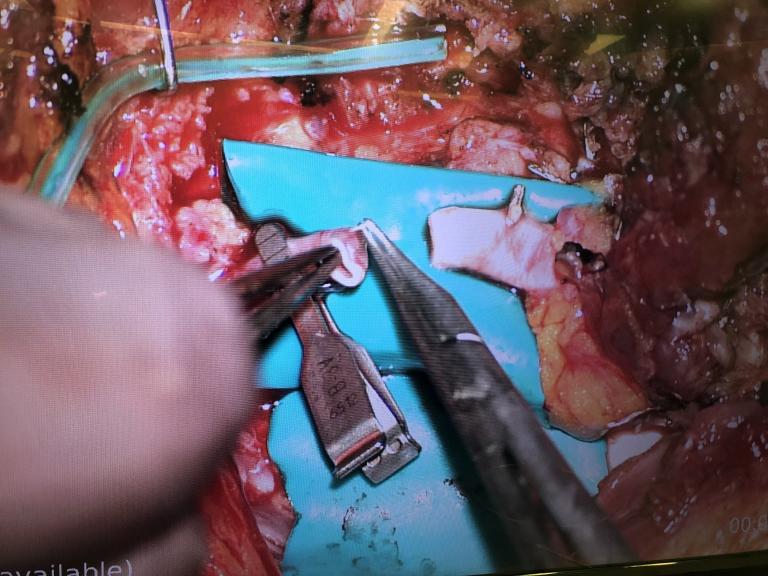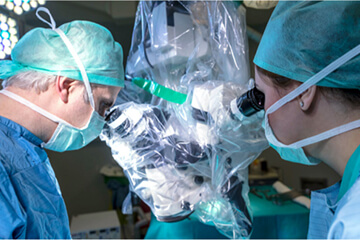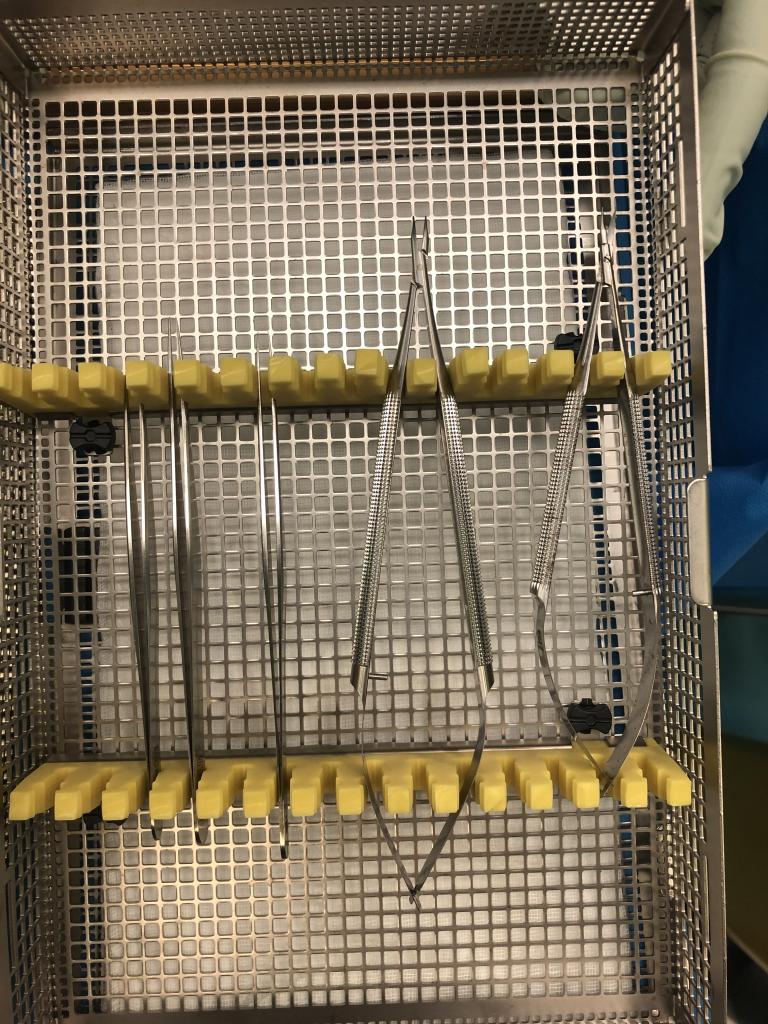Depending on the individual condition, a nerve can be repaired immediately or later.
Immediate nerve repair
Direct nerve repair
Direct nerve repair has the best recovery rates, but your eligibility will depend on the extent of your nerve injury.
During surgery your surgeon will use a microscope or magnifying glass to repair cut nerves with sutures finer than human hair.
Nerve grafting
If part of the nerve is missing, the surgeon may not be able to perform a direct repair. Nerve grafting involves using a piece of nerve from somewhere else in the body, most commonly the forearm or leg. Patients will have a scar and localised numbness in the area where the graft was taken.
Later nerve surgery
Nerve freeing (Neurolysis)
Nerve freeing may be performed if the nerve was repaired, but there is some scar tissue in the area around the nerve that causes you discomfort when you move, or impedes nerve cell regeneration.
During surgery your surgeon will surgically release the scar tissue to decrease discomfort.
Nerve burying
Neuromas can develop after a nerve injury in the hand, causing pain. This usually occurs in areas where nerves can’t be repaired, such as amputated fingers.
Nerve burying involves the surgeon cutting away the neuroma then burying the nerve inside the muscle or bone to reduce sensitivity and pain. The area will become permanently numb.
Nerve grafting
In some cases a nerve may not recover due to neuroma or if the nerves fail to connect properly.
Nerve grafting involves the surgeon trimming the ends until healthy nerves are exposed, then a piece of nerve graft is inserted. Function and sensation is worse after surgery, however it should gradually improve.
Nerve wrapping
Sometimes due to a neuroma a nerve can be constantly tender. Nerve wrapping involves wrapping a fat, a vein or other substance around the nerve to provide cushioning and reduce sensitivity.
